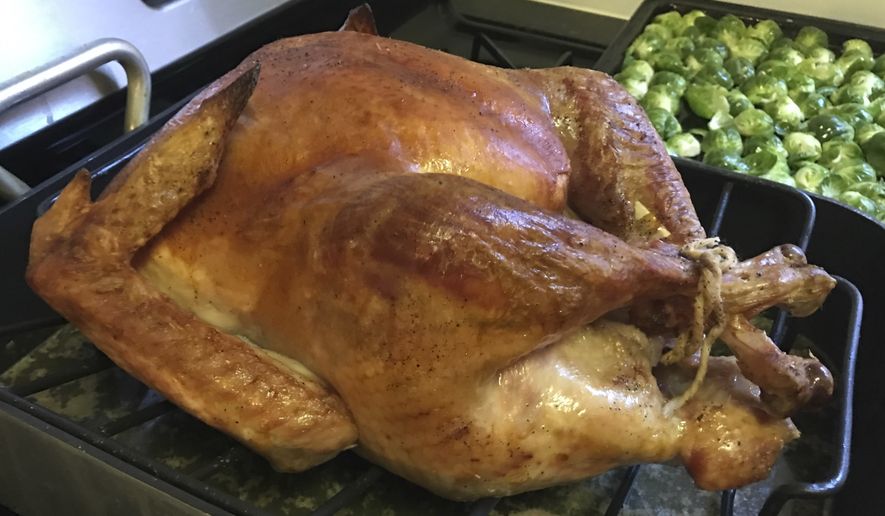OPINION:
Every evening, looking dapper in dark suit and tie, Ashok Bajaj visits each of his 10 Washington restaurants to make sure kitchens are running smoothly and patrons are happy. He is not a cook, but an entrepreneur with a vision of what Washingtonians enjoy eating today and tomorrow as well.
Mr. Bajaj was born in Delhi, and came to this country in 1988 in his 20s. He opened his first venture, the Bombay Club (815 Connecticut Avenue,NW), as a formal, high end Indian restaurant that same year. This December, the Bombay Club is celebrating its 30th anniversary.
The restaurant is attractive and elegant, a popular destination for politicians past and present. White tablecloths grace the well-placed tables; ceiling fans revolve slowly overhead and photos of India then and now add a raj-like atmosphere. A pianist accompanies dinner; conversation is possible. The extensive menu offers a variety of perfectly prepared Indian classic dishes, many with innovative touches.
Among the dozen first courses, along with Mulligatawny soup and chicken tikka, are sweet potato chaat, a superb spicy combination of cumin, chili powder, date and tamarind chutney, and a small round of crab (Goan crab masala) prepared with spices, onion and curry leaves. The duck kebab is crispy, cigar shaped and lightly spiced.
An unusual version of lamb curry with apricots in a slightly sweet sauce is tender and delicious. Green chili chicken curry is very spicy, the chicken moist and tender, like the lamb. Bombay Club’s dal, the ubiquitous addition to every Indian meal, is outstanding, creamy and soothing, a mix of lentils, tomato and garlic. It’s not to be missed. Another outstanding vegetarian dish is the mound of pureed kale and spinach in a silken sauce of prunes, yogurt, tomato and cashews.
Bombay Club offers a number of tandoori entrees, including salmon. shrimp, and lamb chops, and almost a dozen different breads. One of the best ways to sample the restaurant’s cuisine is with a house thali, a tray containing a number of small round bowls filled with samples of different dishes, including raitas and dal, vegetable, seafood or meat curries.
Prices range from $9 to $12 for first curses, and $14 to $26 for entrees with thalis priced at $23 to $27. The restaurant is open for lunch Monday to Friday and Sunday brunch from 11:30 a.m. to 2:30 p.m., dinner Monday to Thursday 5:30 to 10:30 p.m., Friday/Saturday 5:00 to 11:00 p.m., Sunday 5:00 to 9:30 p.m.
For Thanksgiving, special dishes will be added to the a carte menu, including butternut squash samosa, turkey cranberry tikka with Brussels sprouts, sweet potato bhaji, and pumpkin creme brulee.
Many of the other restaurants in Mr. Bajaj’s Knightsbridge Restaruant Group have eclectic Thanksgiving menus. At Rasika (633 D St. NW) and Rasika West End (1190 New Hampshire Avenue NW), Executive Chef Vikram Sunderam will prepare special turkey dishes priced at $22.
The elegant Oval Room (800 Connecticut Avenue NW) celebrates with a $60 three-course prix fixe menu which includes oyster bisque, quail, pheasant and venison, as well as roast turkey and pumpkin pie. Truffles are in season and can be added to some of the dishes for an additional price.
701 Restaurant’s (701 Pennsylvania Avenue NW) $55 three-course menu includes such unusual dishes as sunchoke soup, wild boar tart, and smoked yam panzotti, as well as traditional fare. NoPa Kitchen & Bar’s (800 F St. NW) $55 menu offers choices such as octopus carpaccio, duck breast, turkey schnitzel and turkey sausage, and maple roasted kabocha squash.
The special $69 tasting menu at the Italian restaurant Bibiana Osteria Enoteca (1100 New York Avenue) runs the gamut from turkey and apple meatballs, warm turkey carpaccio, honey glazed Brussels sprouts, to chestnut gnocchi, farro risotto with quail ragu, roasted turkey breast and pumpkin pie.
At Mr. Bajaj’s latest creation, Sababa (3311 Connecticut Avenue NW), an Israeli/Mediterranean concept, special Thanksgiving items are roasted pumpkin hummus, turkey kofta, grilled lamb chops and lamb matzo ball soup, priced at $10 or $15 each.
Turkeys are native to North and Central America. They were first domesticated by the Aztecs in Mexico, then introduced in Europe by the Spaniards in 1519. By 1541, the domesticated birds were available in England, and then the European-bred variety was reintroduced to Northeastern America in the late 17th century.
Thanksgiving is based in part on harvest celebrations and on religious Days of Thanksgiving. The former started in 1621, when the Plymouth colonists sat down to a three-day feast with the Wampanoag Indians to celebrate that year’s harvest, feasting on venison, wild fowl, sea bass, cod, Indian corn and pumpkin — not pumpkin pie as the Colonists had no sugar. The celebration was not repeated the following year.
The first religious Day of Thanksgiving took place in 1623 in Plymouth when the drought ended and a ship with provisions was sighted. Over time, the Thanksgiving tradition in the United States developed into a national holiday with the celebration ultimately set by President Franklin D. Roosevelt in 1939 as the fourth Thursday of November, a decision approved by Congress in 1941.
We no longer celebrate bountiful harvests, but give thanks for the blessings of food on the table and the family and friends sharing it. Ashok Bajaj’s restaurants offer an alternative to cooking at home, and by next Thanksgiving, Mr. Bajaj will have added his 11th restaurant, featuring farm-to-table American cuisine in what was formerly Nora’s Restaurant in Dupont Circle.
• Corinna Lothar is a Washington writer, critic and frequent contributor to The Times.




Please read our comment policy before commenting.